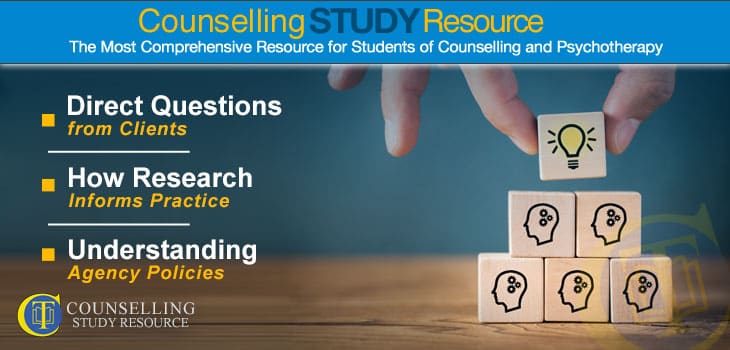Direct Questions from Clients (starts at 2.30 mins)
It is part of human nature to be curious about others and so to ask them questions about themselves – but in counselling training, we may be taught not to self-disclose. So how do we respond when asked direct questions by clients?
Some therapists might say that you shouldn’t answer the question but should instead direct it to back to the client. For example, if a client asked where you were going on holiday, you might then respond: ‘I’m wondering why it’s important to you to know that.’ Rory’s view is that this may not enhance the therapeutic relationship; he would usually choose to give a straight factual answer to this question himself. This can be useful in showing yourself to be human and so helping to build psychological contact.
Ken explains the dangers of ‘tag questions’ (where a statement is followed by a ‘hidden’ question, e.g. ‘isn’t it?’, ‘don’t they?’ or ‘shouldn’t he?’). These are often used by the speaker to gain agreement from the listener, and in social settings, it may be polite simply to let this pass. However, in the therapy room, tag questions can trap the novice counsellor into colluding with the client by agreeing with, for example, a prejudice (e.g. ‘That’s typical of men, isn’t it?’). In this situation, it is fine to challenge the client, but do avoid getting into a debate with them: instead, simply say that you disagree and explore the reasons for their belief.
There are two main ‘camps’ in counselling on self-disclosure. One would advocate disclosing nothing, while the other would suggest selective transparency, particularly when the self-disclosure could be argued to be in the client’s interests. There is no definitive right way: you need to decide yourself what approach feels appropriate to you and your practice.
What are your views on self-disclosure? Do/would you ever self-disclose – and if so, in what circumstances? Do let us know via the Counselling Tutor Facebook group. We also have a business page on Facebook, where you can leave us a review if you’ve found our podcast and other materials useful in your studies.



